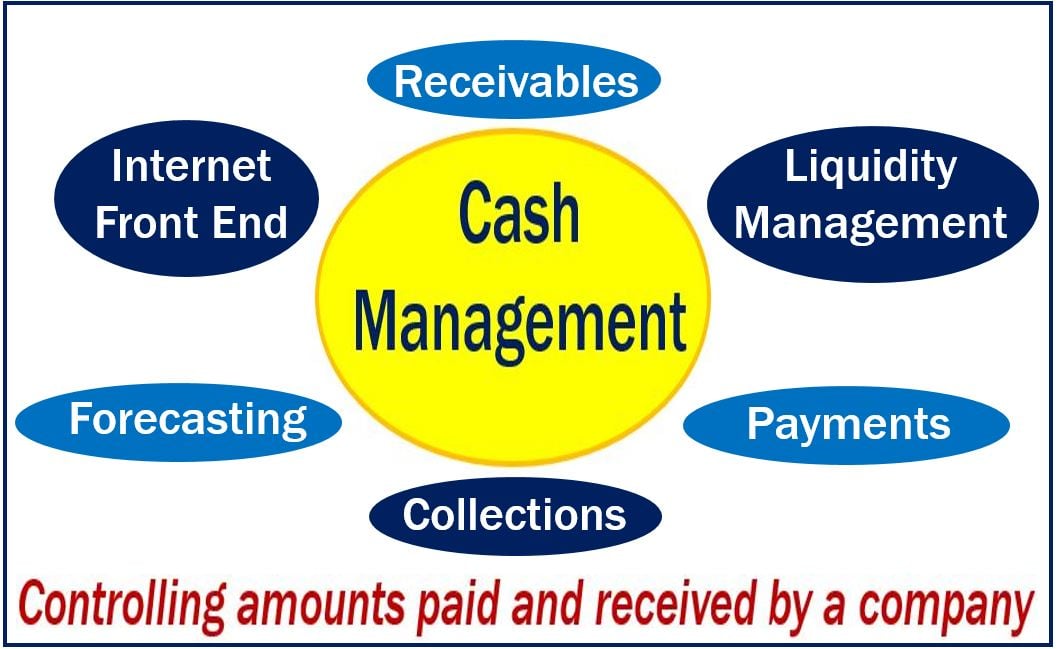Cash management refers to the collection, handling, usage, and (short-term) investing of cash. In other words, it is the management of the cash that flows in and out by a company.
Cash management covers a broad area of finance. It includes assessing cash flow and market liquidity. It also includes assessing investments.
There is more to effective cash management than simply avoiding insolvency. It also involves optimizing the timing of accounts payable and receivable to maintain a favorable working capital cycle. This strategy not only safeguards against insolvency but also contributes to the overall financial health and agility of the business.

Cash management – preventing insolvency
Managing cash flow is probably the most important task of business managers. If a company cannot pay bills when they are due because there is not enough cash, it is insolvent. In fact, insolvency is the main reason for bankruptcy.
Effective cash management is crucial for the survival of a new company. It is also vital for an expanding business. Cash flow may be a problem for a small business with many clients. Even companies selling the best product on the market can have cash flow problems.
A company with cash flow problems is at the mercy of the elements. Put simply; it has no margin of safety. When expenses appear that it had not expected, it is in trouble.
Small companies have less access to credit than large ones. Therefore, they must rely heavily on their own money to meet obligations.
Cash management in banking
Cash management in banking relates to services that banks offer to large companies. These are cash flow services.
The services include zero balance accounting, automated clearing house facilities, and cash concentration.
There are software programs that automate how a company collects money from customers. There are also Internet services, clearing houses, cash concentration, and balance reporting.
Armored car services and lockbox banking are alternative options. A lockbox is a P.O. box to which the company’s bank has access.
Banking regulations regarding banking services have become very strict. Since the 2007/8 financial crisis and the growth in international money laundering, the authorities have tightened up their regulations.
Cash refers to only coins and banknotes. However, in cash management, businesses also work with cash equivalents. Cash equivalents are assets that we can easily convert into cash.
Working with cash equivalents is becoming more and more common in this electronic age. Today, the monetary system is less physical and more abstract than it used to be.
Video explanation
This educational video explains what ‘Cash Management’ is using simple and easy-to-understand language and examples.
